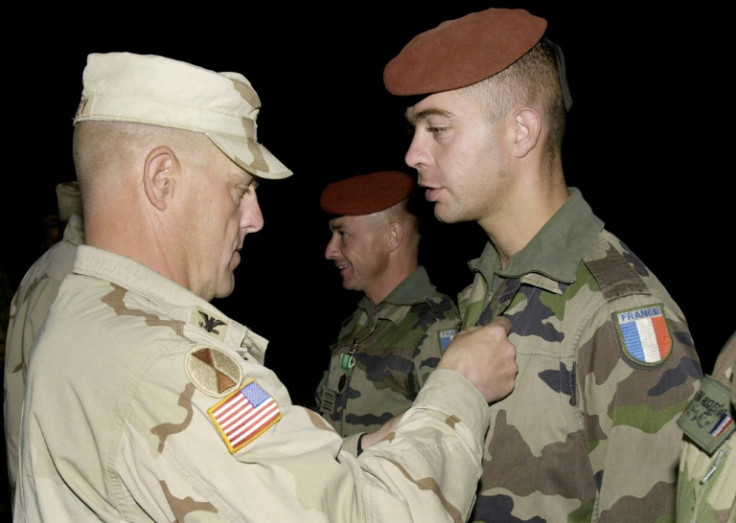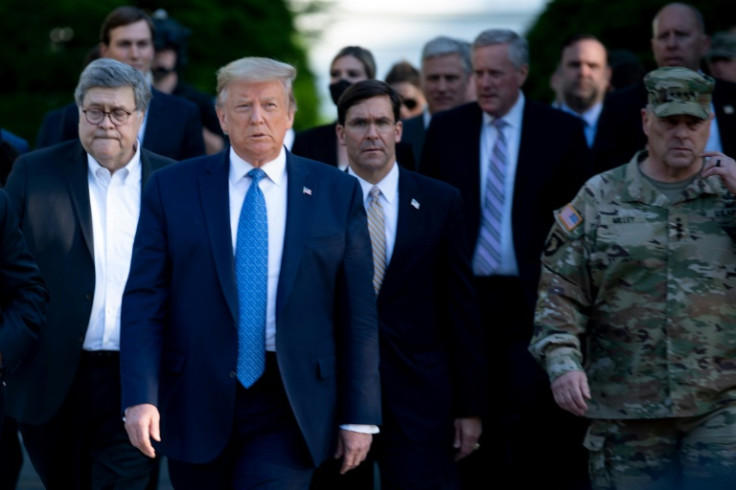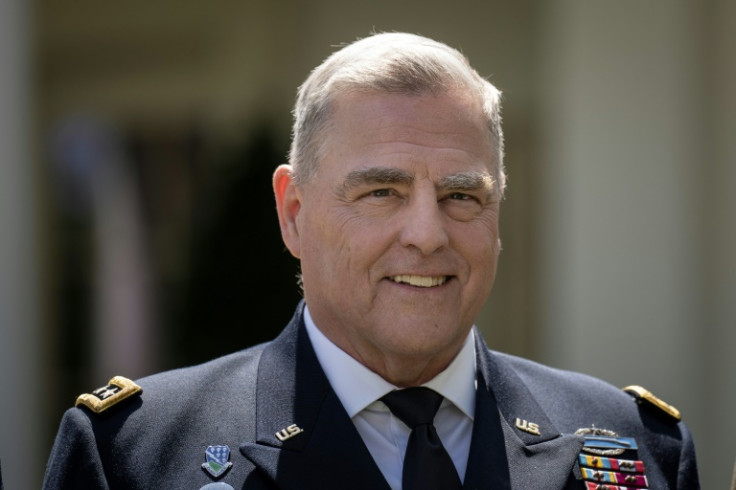Milley: America's 'Lightning Rod' Top Officer

General Mark Milley faced repeated crises at home and abroad during a tumultuous term as America's top military officer, becoming one of the most well-known and controversial people to hold the position in years.
Russia's invasion of Ukraine, the US withdrawal from Afghanistan, Donald Trump's refusal to accept his presidential election loss and nationwide protests against police brutality are just some of the events that defined his time as chairman of the Joint Chiefs of Staff, which ends Friday.
"It was one crisis right after another, so we were constantly absorbed with what I would call current operations," Milley told AFP in an interview last month.
"The challenge for me is I didn't devote enough time -- because I couldn't -- to the challenge of... reforming and modernizing the military," he said.
Milley -- a gregarious 65-year-old history buff -- was commissioned as a US Army officer in 1980 and deployed to countries including Iraq, Afghanistan, Panama and Haiti.
He served as chief of staff of the US Army before becoming chairman of the Joint Chiefs in October 2019.
Milley infamously found himself in the political spotlight less than a year into his term as chairman.
He was sharply criticized for participating in what was widely seen as a political show by Trump, who walked with Milley and other officials from the White House to pose with a Bible in front of St. John's Episcopal Church in June 2020.
Just before he did so, police and National Guard troops fired smoke bombs and pepper balls at people in the area who were protesting the killing of George Floyd, a Black man, by a white police officer in Minnesota.
"I should not have been there. My presence in that moment and in that environment created a perception of military involvement in domestic politics," Milley said days later.
He also had to contend with the chaotic end of the Trump administration, with the president refusing to concede he lost the 2020 election.
Just days after Trump supporters attacked the US Capitol on January 6, 2021, then-House speaker Nancy Pelosi expressed concern that the president might order an unnecessary nuclear attack.
That prompted Milley to speak with officers who would be involved in such a strike to make sure "we understand our procedures and know what the rules are," he later told lawmakers.
He was also in contact with China before and after the 2020 election -- calls his spokesman said were in keeping with his duties to convey "reassurance in order to maintain strategic stability."
But Republicans accused the general of undermining civilian control of the military and unsuccessfully pushed for him to be fired.
Milley is popular with many US liberals, who credit him with helping protect the country from Trump.
But he is a bete noire for various conservatives, including Trump, who recently said Milley's retirement would be "a time for all citizens of the USA to celebrate."
Milley told lawmakers in 2021 that he had become a "lightning rod for the politicization of the military," despite advocating for America's armed forces to be apolitical.
"There is a deliberate attempt, in my view, to smear the general officer corps and the leaders of the military and to politicize the military," he said.
Another defining event of Milley's tenure was the 2021 American withdrawal from Afghanistan, which saw Taliban fighters sweep aside Western-trained Afghan troops, forcing the last US military personnel to mount a desperate evacuation from Kabul's airport.
More than 120,000 people were evacuated from the country as the United States ended its longest war, but others were left behind or died trying to leave, and the withdrawal was also marred by a suicide bombing that killed scores of people, including 13 American service members.
"It certainly didn't end the way any of us who served there wanted it to end," Milley said.
But "those troops that fought there, served there and those that died there, didn't die in vain -- they protected this country," he said.
Much of the second half of Milley's four-year term was consumed by efforts to help Ukraine counter Russia's 2022 invasion.
He drew fire for saying there was a window for negotiations after Kyiv's forces regained significant territory in 2022. Ukraine did not begin talks with Russia, and has yet to make major advances in its counteroffensive this year.
Kyiv's "objective is to get to liberate their entire country. The question is, from a military standpoint, is that militarily achievable or not?" Milley said in August.
The general's retirement will be marked by a ceremony on Friday, ending a military career that has spanned more than four decades.
"I'm very proud of the folks I've served with -- they're an inspiration to me every single day, they and their families and the sacrifice that they've given," he said.


© Copyright AFP 2024. All rights reserved.











